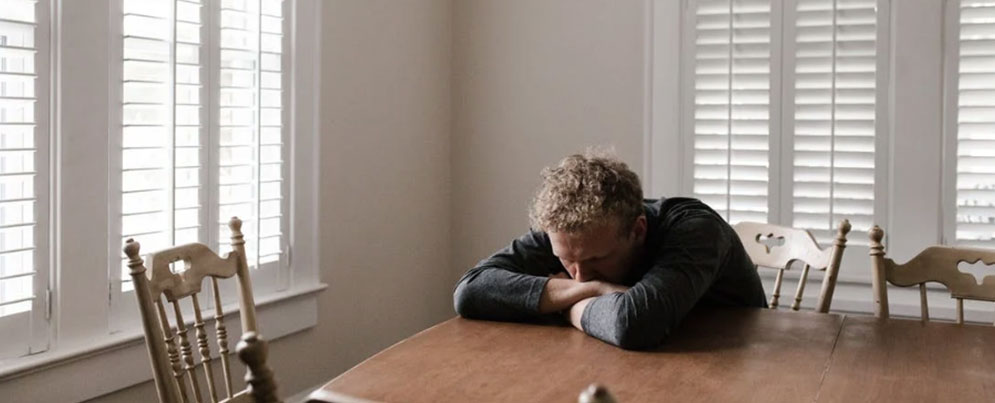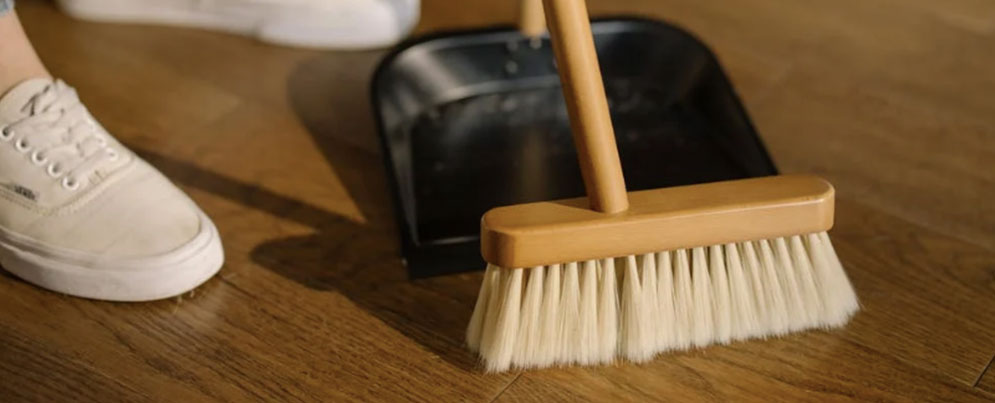It’s always a huge decision to sell your house. It’s something that evokes different kinds of emotions in people. As soon as your real estate agent calls you with the news of finding a buyer, you can be overwhelmed with a range of these emotions — including relief, happiness, and anxiety about the next steps. It is here that you will need to know the things you are required do for selling your house.
We aim to help the readers get a better idea of several basic yet important things that they need to do right after they sell their house to a potential buyer. We seek to inform the readers where they should start to take the correct steps right after the sale, from papers to further investment of the money earned from selling your home.
In this article, we will first mention some basic things you need to do after the sale and before closing. Moving ahead, we will discuss the things you should do at the time of closing. And finally, we will discuss what can be done once the deal is closed.
Before Sale: Why Hiring Real Estate Agents Pays Off
As mentioned above, selling your house is usually an emotional experience. Having a real estate agent puts you one step away from the process and reduces your chances of making costly mistakes such as overvaluing your house, quoting prices that are unreasonable, yielding in easily even when you’re on a tight schedule, or refusing to contest a low bid because you’re insulted.
Whenever you have to show your house to potential buyers, you have to put your life on wait to make your house appear flawless. This requires a lot of labor and significant inconvenience. You want to restrict the viewings to the ones that are most likely to lead to a sale. This is where a real estate agent emerges as a savior.
The same agent can determine whether a visitor to your home is a serious buyer or merely a daydreamer or nosy neighbor. Moreover, they know how to attract buyers and help you sell faster than you would on your own while ensuring that your home’s sale price is according to the latest market standards and rates. Once everything is taken care of, they may also act as your closing agent to help you in your final walk.
Make It A Point To Hire An Experienced Real Estate Agent

An experienced agent puts forth a lot of effort to earn their commission. They help you put your best foot forward and get the best possible sales price. They can, for example, market your property to the widest targeted market and haggle on your behalf to get the best available offers. If you do all of it on your own, you’ll be responsible for preparing your property for sale, marketing it, assessing buyer offers, and handling all negotiations and closing formalities.
Things To Do After You Sell Your House – Pre Closing
Avoid Getting Emotional
When someone sells their home, it’s often emotional. You had spent valuable time getting the right one, saving on the deposit, managing personal finance, furnishings and creating many memories. It can be difficult for the human spirit to keep the moods at ease. Is this possible? No.

Immediately after deciding on a home sale, think of yourself more like a businessman or salesman than a sole homeowner. You can also forget to become an owner. Getting through just a financial standpoint will prevent emotional aspects when you sell.
Expecting The Asking Price
Smart buyers will negotiate, and a successful sale may require a little playing. Almost everyone wants to sell their house to a buyer at a price that will provide enough space for negotiation – the opposite of this discussed underpricing strategy.
It functions to let you know that the potential buyers feel that you are getting optimum value while allowing you to make all your purchases. Naturally, whether you’ll get much less than your selling price will probably depend on your pricing strategies but also on how well you staged or modernized your house.
Remember To Send Change-Of-Address Notices
Do not wait to notify everyone about your address change. Visit or contact local postal authorities for a Mover’s Guide containing a permanent change of address order card (or do everything online). Please submit an email to the Mail Order Center within 1-2 business days of moving to ensure timely delivery of mail.
Make a list of all the persons, companies, and organizations who might try to contact you via mail. Make a list and then contact everyone on it to inform them of your new address. The IRS is one of the most crucial organizations to notify of a change of address. Visit your post office to make necessary changes. After all, you don’t want your tax data to end up in the wrong hands.
Stop Services, Subscriptions, And Settle Fees
Remove all of your household services from your name. You want things to be as straightforward as possible. A part of this entails ensuring that you only pay for items that you use. Contact your cable provider, utility provider, internet provider, and any other service provider that delivers solutions to your home. Tell them that after the day you’re moving out, you’ll no longer be responsible for any fees incurred and that you’d like your account canceled.
Hiding Major Problems
How can we hide serious issues we have in our homes? All problems are discovered during the buyers’ inspection. There are three possible approaches to your problem. Fix the problem before the deadline, sell the house for less than the market rate, and offer the buyer credit for a solution.
Remember: Until you have fixed the problem early, it could eliminate some of these people from purchasing a fully equipped turnkey home. It is advisable to have your house checked for potential problems before you list the home. There are several states regulating disclosures.
A Home Inspection Is Vital
An inspection is optional at the time of buying but may represent an excellent investment in the initial phase. Detailed inspection reports can identify structural and mechanical problems before a house goes into closing post the sale. It may cost you a few 100 dollars, but it can alert you to problems that buyers may flag later on in their own inspections.
When selling a house, home inspections are a normal part of the process. After all, no one wants to be stuck in a money hole, and a house inspection will spot any potential pitfalls. As a homeowner, you need to be aware of the fact that once the buyer has made a down payment, they might be interested in having a thorough check done on your property. A home inspection is a home on track to become more viable for buyers.
That’s why you need to be smart as a home seller and should not fix every problem in your pre-sale home inspection. The idea is to leave some scope for the home inspector hired by the buyer to suggest changes and repair work. Or else, the new owner would feel that there’s something fishy with their own inspection since there would be no problems discovered later — as is human nature. Don’t make excessive home improvements in a bid to ensure a quick sale.
Thoroughly Clean The House
It’s never a bad idea to make a nice last impression on a consumer with small details like polishing kitchen fixtures. Clean the interior and exterior of the cabinets, refrigerators, dishwasher, washing machine, and other appliances. Shampooing the carpets isn’t always necessary, but it is a lovely touch.

What constitutes a clean house is frequently a matter of personal taste and judgment. If you don’t have time to clean your house before you leave, engage a professional cleaning service. Cleaning also entails that you check and remove all your personal belongings from the house. Get a fresh coat of paint as well to enhance the clean feeling associated with the house.
Things To Do After You Sell Your House – At Closing
The Paper Trail
Get yourself a file box and put your papers in it. Save it for your records as it’s important for the tax years that will come. If your home is remodeled and you add a new bathroom, remodel the bedroom, or renovate the basement, your taxes could be paid back. Research online to see if a new improvement meets your requirements. Take good care of your contractual obligations and all the paperwork.
Read The Settlement Statement Very Carefully
Even if your real estate agent, purchaser, and other entities with whom you engage during the sale are all great, imperfections sometimes remain. And some individuals will want to take advantage of these imperfections to make a little extra money if they are sure that they can get away with it. Therefore, you need to be thorough in examining and understanding the settlement statement of home sales.
Check that all of the payoff amounts on any mortgages are correct, that you have included any extras your representative might have assured, and that any of the fees stated are prices you were aware of previously.
There should be no surprises, and if there are, they should be described in detail. Note that certain suggestions may be made to leave specific items off the settlement statement. Do not agree to anything without first consulting an attorney about your legal risks.
Hook The Buyer Up With Essential Home Ownership Paperwork
You should provide the buyer with crucial property ownership documentation. Any appliance manuals you have, any warranties for items you may have replaced, such as a water heater, and a list of contract workers you have employed are all things that might be beneficial to the new owner. This is also an excellent addition to real estate marketing to aid in the sale of your home.
Buyers will be ecstatic if you make an effort to put together a group of professionals you know and trust who have previously performed admirably for you. Landscapers, house cleaners, handymen, and other professionals are examples. While this is not required, it is a thoughtful gift that the next owner would appreciate.
A Final Walkthrough Is Crucial
You must take part in the final walkthrough. There are many peculiarities about a property that only the former owner would be aware of. During the final walk-through, you can tell the buyer or agent, for example, which switch controls the lights, how to change the water filter, and whether a door locks.
Things To Do After Selling Your House – Post Closing
Handling The Money
Handling the money is probably the most crucial aspect of post-house sale activities. You need to be vigilant about where you invest or store your money and this is where the help of an accountant becomes important.

You most likely already have a reliable accountant, and you’ll undoubtedly require their assistance when tax season arrives, and you have to file your tax return after you sell your house. Moreover, your accountant also plays a vital role in offering reliable Tax Resolution Services.
Stash your cash in a good money market fund
If you aren’t planning on buying a new home right immediately, try investing the proceeds in a money market mutual fund. Doing this will keep your money safe while also allowing you to access it whenever you choose.
These mutual funds are ideally positioned to offer both safety and monetary returns. While money market funds aren’t protected by the FDIC(Federal Deposit Insurance Corporation), they can be accessed using the FDIC online.
For example, One Fund has never lost retail shareholders’ principal during its history; the losses were only about 1% minus. During the last decade, hundreds of bankrupt transactions occurred where depositor losses were greater than FDIC limits. Like a bank savings account, it offers access to the money without penalty.
It’s Time To Review Your Financial Goals
This is also an excellent moment to review your financial objectives. Check to see if you’re on schedule to fulfill your short-term goals such as a vacation, buying a new car, an emergency fund, etc. Also, analyze where you stand in terms of your long-term goals; a perfect example would be retirement. If you’re lagging in any of these areas, make it a top priority to use the amount to catch up with the time you have already lost on.

Pay Close Attention To Various Tax Laws
Tax laws are subject to revision on a regular basis. The unsteady nature of tax laws can be a source of frustration for us all, yet there are instances when it can be advantageous. You should be alert if the tax regulations change in your favor, like enabling you to keep a bigger share of the earnings from recently sold properties. Moreover, even if changes are detrimental to you, it is best to be aware of them and plan accordingly.
For instance, if the house you’re selling is your primary residence (and it has remained the same for at least two out of the last five years), you will be eligible for a capital gains tax exemption of $250,000 for singles and $500,000 for married couples. In other words, if you’re married and your home was sold for less than $500K, you won’t have to pay taxes on your gains.
Get ready for your move
Once you have secured the mortgage concerning your dates of payment and your closing date, you’re ready to pack up. Hiring a reliable moving company is critical considering that you’re dealing with many valuables that will be involved.
Once your list is complete, you can check with your local Better Business Bureau office for complaints. It is also possible to find out if a company has a good driver’s license. Make an estimate from the mover before you choose any.
Before deciding on a mover, acquire two-three quotes from various available options. When a company representative visits your home, be open and honest about all of the objects you want to be moved so that your price is accurate and reliable.
They should give you a quote that includes their hourly rate, the number of hours it will take to complete the move, and any additional fees you may incur.
Remember That Renting Can Be A Fine Strategy
Before deciding to stay in a particular neighborhood or property you should explore several different housing options that suit your specific lifestyle. We’ve seen many variations on the famous Socrates quote “The unexamined lives don’t deserve being lived”.
You can also try renting in a local area you love. When the neighborhood becomes everything you aspired to do, then you can move faster if houses are available in a region or a geographic area. A second option would be to pat yourself on the back for avoiding buying or using rental units as a way of investigating other options.
Conclusion
We are sure that this guide will help you make the right decisions as you finally sell your house.







